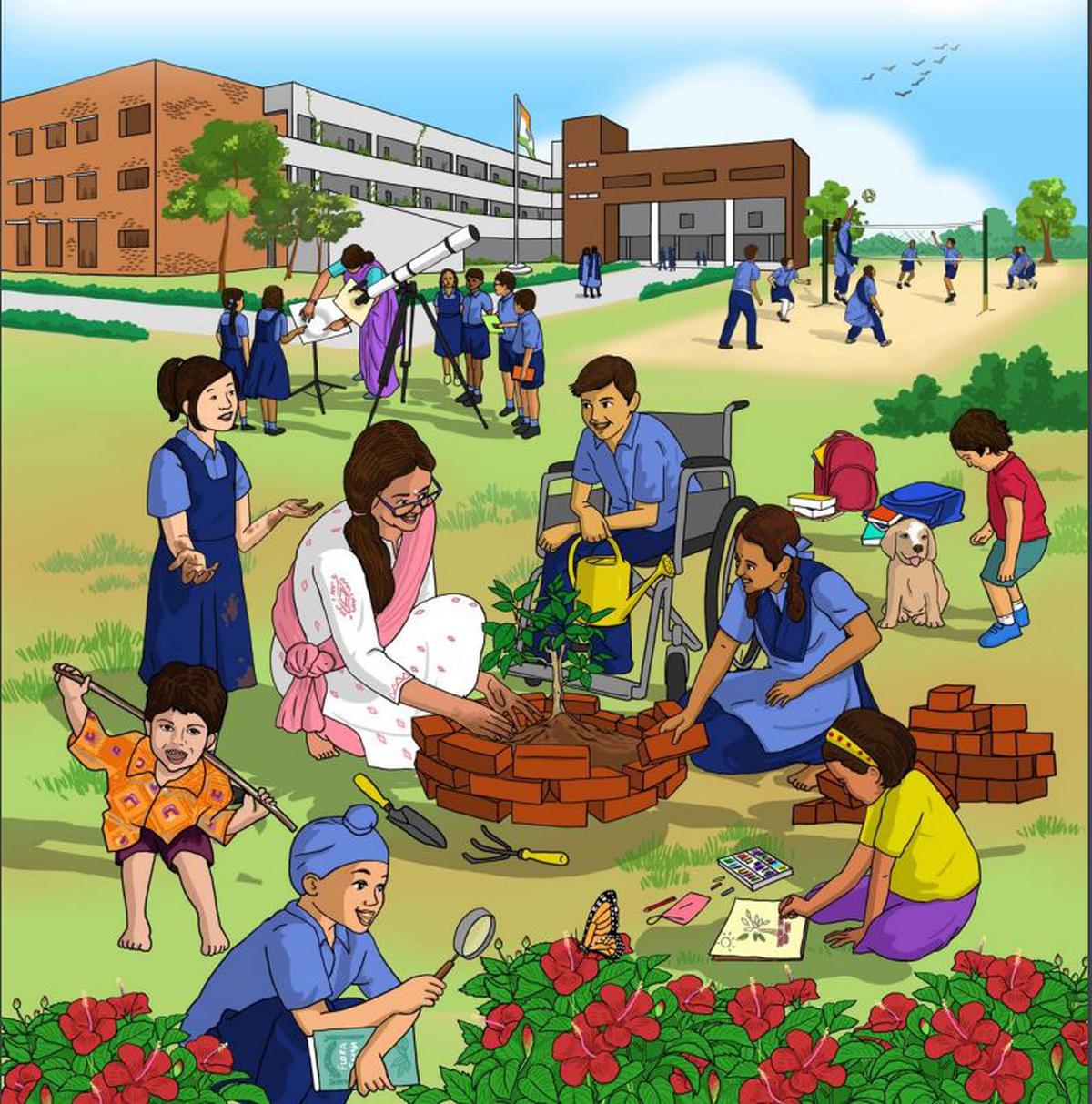
Apr 07, 2023
Government releases pre-draft of National Curriculum Framework for schools, seeks feedback
Recommendations include modular Board exams instead of single exam at year-end for Classes 11 and 12, and basing result on cumulative score
The Ministry of Education released a pre-draft version of National Curriculum Framework for School Education on April 6, 2023, and has sought feedback from various stakeholders, including students, parents, teachers, teacher educators, experts, scholars and professionals.
Given the diverse needs of students, multiple pedagogic approaches, learning-teaching material at the different stages of school education, it is felt important to take feedback from this NCF-School Education (SE), MoE has said in a statement.
“While giving your feedback, it needs to be kept in view that this is a pre-draft of the NCF-SE which still requires several rounds of discussion within the National Steering Committee (NSC). Feedback from diverse stakeholders will further help NSC to look critically into different modalities and approaches that this framework is proposing,” the Ministry said.
The pre-draft covers the framework of curriculum for age groups 3 to 18 years. Feedback can be sent by email to ncf.ncert@ciet.nic.in
A key part of the document is inclusion of values and its “rootedness” in India. The pre-draft says, “It is deeply rooted in India. This is in content and learning of languages, in the pedagogical approaches including tools and resources and in philosophical basis — in the aims and in the epistemic approach.”
The document further says that it leans towards making students acquainted with true sources of knowledge, which have been a philosophical preoccupation of ancient Indians. These sources focus on six pramanas: pratyaksa, interpreted as perception through five senses; anumana, which uses inferences to come to new conclusions; upamana, which is knowing through analogy and comparison; arthapatti, which involves knowing through circumstantial implication, anupalabdhi, which includes perception of non-existence, and sabda, which the document explains is “something an individual can only directly know a fraction of all reality through direct experience and inference but must rely on other experts was acknowledged thousands of years ago”.
The pre-draft says that for Grade 10 certification, students will have to take two essential courses from humanities, maths and computing, vocational education, physical education, arts education, social science, science and interdisciplinary areas. In Grade 11 and 12, students will be offered choice-based courses in the same disciplines for more rigorous engagement.
Arts education will include music, dance, theatre, sculpture, painting, set design, scriptwriting, while inter-disciplinary areas will include knowledge of India, traditions and practices of Indian knowledge systems.
For Class 11 and 12, the document states, “Modular Board Exams will be offered as opposed to a single exam at the end of the year and final result will be based on cumulative result of each exam.”
The document focuses on the importance of questioning by giving examples of the Upanishads, and includes examples from Katha Upanishad. It terms debates between Adisankara and Mandana Misra as legendary.
For the framework of the social science curriculum, it emphasises on understanding and appreciating the feeling of Indianess, ‘bhartiyata’, by valuing the rich cultural heritage and tradition of the country. The pre-draft recommends learning about Ayurveda and yoga.
It also stresses on identifying and explaining important phases of the Indian national movement against British rule, with special reference to Gandhian and other subaltern movements. The middle-school history curriculum includes the emergence of large empires in the context of Greek and Magadh geographies. It also recommends teaching concepts of Buddhism, Jainism and Vedic and Confucian philosophies.
As a follow-up to the National Education Policy 2020, development of four National Curriculum Frameworks — NCF for School Education, NCF for Early Childhood Care and Education, NCF for Teacher Education and NCF for Adult Education — have been initiated.
The National Steering Committee under the chairmanship of K. Kasturirangan was set up by the Ministry to undertake and develop NCFs.
In this process of deliberations, more than 500 district-level consultations and more than 50 consultations with different Ministries, religious groups, civil society organisations, NGOs and universities were held in face-to-face mode with the participation of more than 8,000 diverse stakeholders, the Ministry said.
In the digital mode, a mobile app survey was used to receive feedback from around 1,50,000 stakeholders. The Citizen Centric Survey, launched by the Ministry in August 2022, has received inputs from more than 12,00,000 stakeholders. The Ministry said, “Inputs are being received in all areas of ECCE, School Education, Teacher Education and Adult Education.”
Recent News
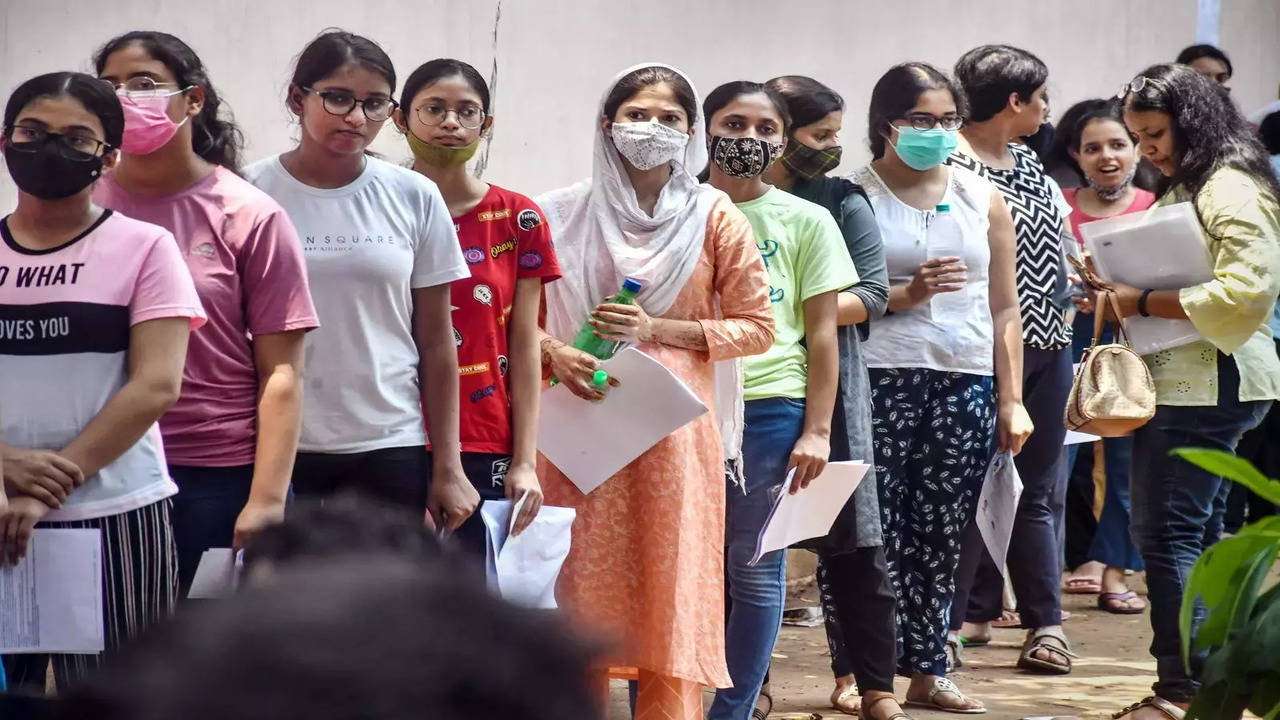
NTA COMPILATION JUNE 2024
Posted 9 months ago
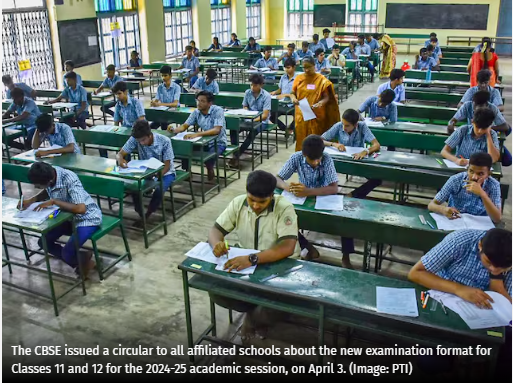
CBSE Changes Year-end Exam Format for Classes 11, 12; Weight...
Posted 11 months ago
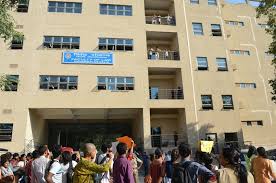
Faculty of Law, Delhi University introduces five-year integr...
Posted 1 year ago
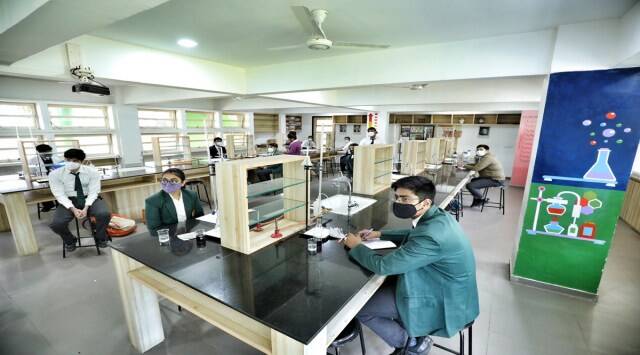
NCERT drops periodic table chapter from Class 10 science tex...
Posted 1 year ago

Now, humanities students can pursue BTech in CSE
Posted 1 year ago
